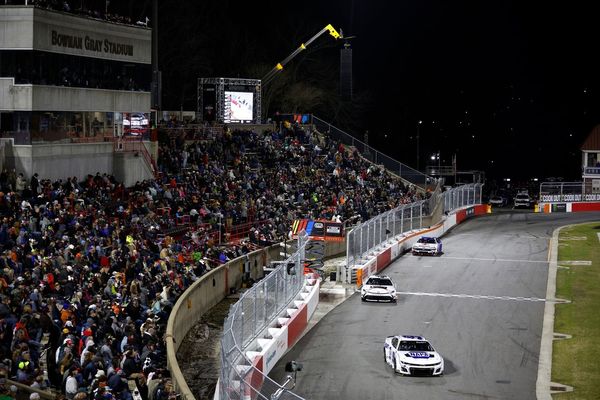
The American boutique manufacturer has opted against racing in the first WEC event in Japan since the advent of the COVID-19 pandemic due to financial reasons, leaving Toyota, Peugeot and Alpine as the remaining entrants in the Hypercar class.
It remains unclear if Glickenhaus will take part in the 8 Hours of Bahrain in November, the last of the two flyaway races that close out the 2022 campaign.
Both events require European-based teams to ship their cars to Asia at considerable cost amid a sharp increase in freight prices this year.
“There's no mystery to it - we are in the process of raising financing for our company that will enable us to expand significantly into hydrogen fuel cell trucks,” Jim Glickenhaus told Motorsport.com's German edition.
“As that happens, we have to figure out exactly what we will do with WEC, and we're very optimistic that it actually increases our participation in the WEC, starting next year.
“But in the meantime, when we're in this process, we are not going to spend the money to go to Japan at this time, because, frankly, we sold out all of the production capacity we have for our road cars, so it just makes no sense.
“Within the next eight weeks we will have more information on what we will be doing exactly. But that's the situation. And then frankly, this was always planned. We were just waiting for WEC to publicly confirm it.”
- Watch the WEC 6 Hours of Monza qualifying and the race live on Motorsport.tv (geo-restrictions may apply).

The WEC had initially made it mandatory for Hypercar teams to sign up for the full season with at least one car in order to gain an entry, with series boss Frederic Lequien stressing that it must ‘follow the rules’ of an FIA world championship.
Those comments followed Glickenhaus completing only a part campaign in the WEC last year, entering the championship from the second round at Portimao and skipping the Bahrain double header after the Le Mans 24 Hours.
Glickenhaus initially announced a full-season programme for 2022 in November last year - including a two-car entry at Le Mans - but Peugeot only joining the series from this weekend's Monza round shows that there was always a degree of flexibility in the WEC's stance.
A decision regarding how much involvement Glickenhaus will have in the 2023 WEC season, when Ferrari, Porsche and Cadillac join the Hypercar class, is yet to be made and could depend on securing additional external backing.
“Based on our funding, you know, our fund raising comes from investors, we will figure out what makes sense,” said Glickenhaus.
“As it is now, every car we sell and every race at the Nurburgring [24 Hours] gives us huge exposure to sell our sports cars, and racing in the Baja gives us huge exposure to sell our trucks.
"But we just can't spend money in the WEC without a way for something to advertise.”
Glickenhaus has also never hidden its intention to compete in the IMSA WeatherTech SportsCar Championship, which will allow cars built to WEC’s Le Mans Hypercar regulations from 2023 as part of a unification between the two series.
However, a production requirement of 2,500 cars per year could prove to be a major roadblock in getting the American manufacturer on the grid in IMSA and its flagship event, the Rolex 24 at Daytona.







